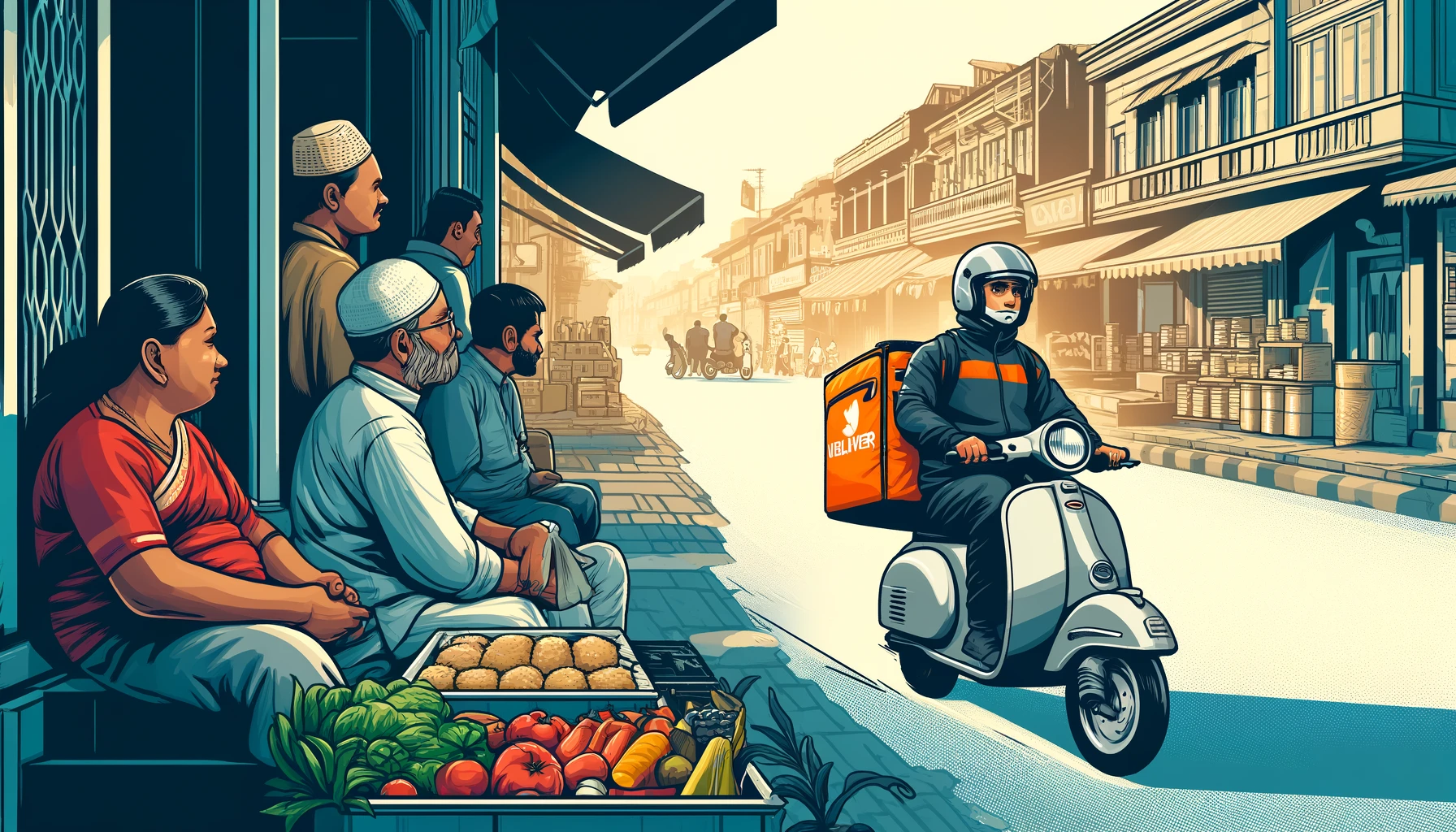
In the bustling suburbs of Mumbai, a revolution in grocery shopping is unfolding at Swiggy‘s warehouse. Employees, under the watchful eye of digital timers, scurry to process grocery orders within a tight 10-minute window. The urgency is palpable, as screens flash red, warning of delays. This intense pace reflects the burgeoning trend of quick commerce—a model that promises ultra-fast deliveries and is transforming consumer habits across India.
Swiggy, originally a food delivery service, has aggressively expanded its quick commerce segment, known as Instamart. The company has grown from delivering restaurant meals to offering a wide range of products, from basic groceries like milk and bananas to more niche items such as condoms and roses. This expansion caters to the growing demand for immediate gratification among urban consumers, particularly those aged 21 to 35 who value time over cost.
Warehouse Operations and Employee Workflow:
- Time Pressure: Employees aim to complete pick-ups in 1 minute and 30 seconds.
- Performance Monitoring: Timers track speed, flashing warnings if workers are too slow.
As of December 2023, Swiggy, valued at $10 billion and eyeing an initial public offering (IPO), has not only scaled up its operations but has also strategically shifted its focus. With over 500 warehouses in 25 cities and plans to increase to 750 by April 2025, Swiggy is betting big on quick commerce to dominate the grocery sector in India, the world’s third-largest retail market.
Financial Stakeholders:
- Investors: Include heavyweights like Prosus, Qatar Investment Authority, and Singapore’s GIC.
- Funding and Expansion: Financial backing supports rapid expansion of warehouse facilities.
The rise of e-commerce giants like Amazon and Walmart’s Flipkart over the past decade introduced Indians to the convenience of online shopping. However, these platforms generally offer same-day or next-day delivery, a pace outmatched by Swiggy and its quick commerce rivals, Zepto and Zomato’s Blinkit.
Consumer Preferences:
- Speed over Convenience: Quick commerce appeals to time-starved consumers who prioritize immediate delivery.
- Changing Habits: Shoppers increasingly prefer ordering online even for immediate needs.
According to Goldman Sachs, quick commerce accounts for $5 billion, or 45% of India’s $11 billion online grocery market, with predictions to rise to 70% of a projected $60 billion market by 2030. This shift is reshaping shopping habits, particularly in urban areas where quick delivery services are most effective.
The quick commerce boom has placed significant pressure on traditional mom-and-pop stores. For decades, these small retailers dominated India’s grocery market, especially in areas without large supermarkets. Now, they face declining sales as more consumers opt for the convenience of quick deliveries.
Market Impact:
- Sales Decline: Small retailers report a 10% to 60% drop in monthly sales.
- Adaptation Strategies: Some local stores are becoming tech-savvy, using WhatsApp groups for quick order processing and delivery.
Despite its rapid growth, Swiggy’s quick commerce division, Instamart, has yet to turn a profit. Financial documents reveal that while annualized order value has tripled, the company continues to operate at a loss. This is indicative of the high costs associated with rapid expansion, marketing, and the low-margin nature of the grocery business.
- Revenue Growth: Order value increased significantly, yet profitability remains elusive.
- Marketing and Expansion Costs: High expenditure on promotions and warehouse expansion impacts profitability.
Swiggy’s main competitor, Zomato, has also invested heavily in quick commerce by acquiring Blinkit. Analysts note that while this sector is currently more lucrative than food delivery, the reliance on urban markets and continuous promotional spending could pose long-term financial risks.
- Diversification: Both Swiggy and Blinkit are expanding into higher-margin products like electronics and fitness equipment.
- Market Positioning: From being an “Indian version of 7 Eleven on the cloud,” Swiggy’s Instamart is rebranding as an “online supermarket.”
In conclusion, as quick commerce reshapes the retail landscape in India, companies like Swiggy are not only transforming consumer behaviors but also dictating new market dynamics. The race for dominance in this new frontier is fierce, with traditional retailers adapting to survive, and financial sustainability for quick commerce platforms still a challenge to be met.
Related News:
Featured Image courtesy of DALL-E by ChatGPT
